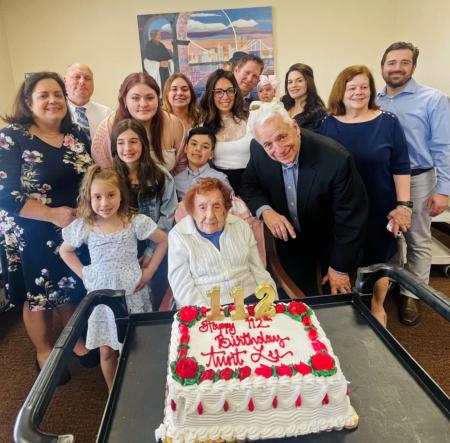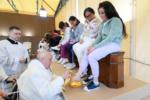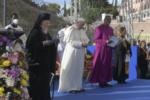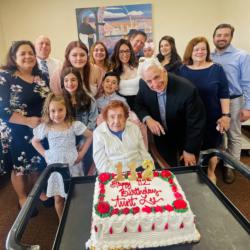Parishes named for next phase of pastoral plan
BRAINTREE -- The Archdiocese of Boston officially announced the parishes that will take part in Phase Three of its pastoral plan, Disciples in Mission, Sept. 15.
The third phase is set to see 37 parishes organized into 18 collaborative ministries that will involve the communities of Braintree, Cambridge, Dorchester, Dracut, Georgetown, Lexington, Lowell, Merrimac, Milton, Newburyport, Plainville, Randolph, Somerville, South Boston, Tyngsboro, Wellesley, Weymouth, and Wrentham. Members of the parishes taking part in Phase Three were informed prior to the announcement.
As in previous phases of the plan, each of the parishes in the new collaboratives will share a common pastor, pastoral team, parish staff, parish finance council and pastoral council. The pastoral plan aims at strengthening parish life by grouping parishes and resources under a common leadership, called a collaborative, and by an expanded focus on evangelization.
The pastoral plan calls for the organization of the archdiocese's 288 parishes into approximately 135 parish collaboratives through seven stages. Based on figures available at the Disciples in Mission website, when the third phase of the process is complete, 108 of the archdiocese's parishes will have been organized into 50 collaboratives.
A first, pilot stage of the pastoral plan involving 28 parishes in 12 collaboratives was launched in 2013, followed by a larger second phase in June 2014.
When the third phase of collaboratives are inaugurated in early June, the Office of Pastoral Planning will still be learning and observing what has worked best in prior phases and how to apply it to the new collaboratives.
"We are probably going to be learning all the way through Phase Seven," director of pastoral planning Father Paul Soper said.
The next step in implementing Phase Three will be pastors in each collaborative submitting their resignations to Cardinal Seán P. O'Malley, to be effective in early June.
Priests assigned to collaboratives in June will not move into the new parishes immediately.
"In Phase Three we're trying to move back by about three weeks the schedule that we had established in Phase Two, to give us more time to try to get the parochial vicars all in place in time to have them be able to participate in the process of the startup of the collaborative," Father Soper said.
Father Soper said pastors and parochial vicars will move to their assigned collaborative location on a single day, after the presbyteral ordination in May.
"We kind of have to do that, because we have to do it at the same time that the newly ordained are coming in," he said.
The next major step after the assignment of priests will be preparing the parishes to function as collaboratives through training.
Father Soper said the Office of Pastoral Planning will focus training for Phase Three on aspects of ministry relevant to collaborative situations. Right now, he said, changes to the training at Phase Two parishes should provide a model for the Phase Three parishes.
"We are trying to make it more relevant to the collaborative situation. We are trying to have it be more focused on having them provide a good local plan," he said.
With the start of the new phase, the office announced collaboratives at individual parishes after consultation between regional bishops or episcopal vicars and pastors. Each parish heard the news separately this year.
According to Father Soper, announcing the collaborative groups at all the participating churches in Phase Two on a single day was not well received.
"We found that that caused some anxiety last year for the parishes that was totally unnecessary," Father Soper said.
Father Soper said the Office of Pastoral Planning is committed to providing information and answers to the impacted parishes and communities on an ongoing basis. He said information sessions to be scheduled at parishes will include pastors, parish staff, parish councils, and in some cases entire parish communities.



















